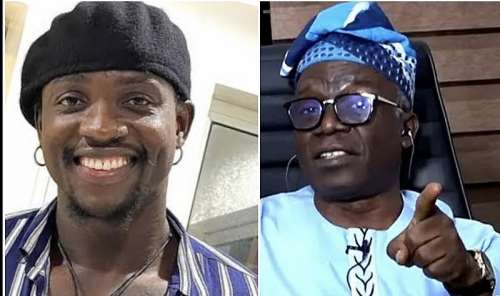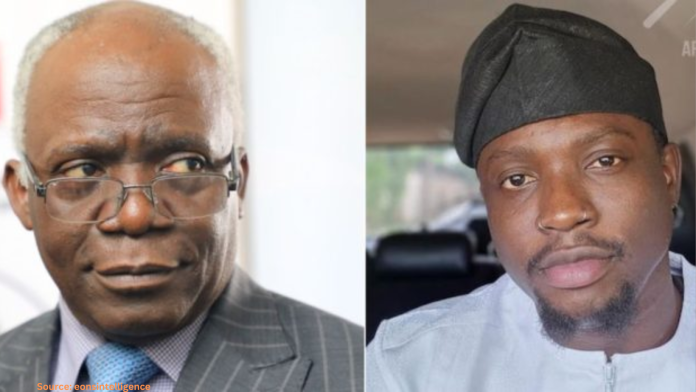- Court Orders VeryDarkMan to Pay N500 Million and Remove Defamatory Posts, highlighting the legal consequences of online defamation.
- Court mandated deletion of defamatory videos and comments to protect the integrity of individuals affected by false statements.
- Justice Dawodu emphasized awareness of falsehood in statements, underscoring the importance of truthfulness in online discourse.
Newsypeople – The recent ruling by the Federal High Court in Lagos has significant implications for social media conduct and defamation laws in Nigeria.
The court mandated social media personality Martins Vincent Otse, known as VeryDarkMan, to pay a hefty sum of N500 million to prominent lawyer Femi Falana and his son, musician Falz.

This decision was reached after the court found that VeryDarkMan had published defamatory statements that were both false and damaging to the reputations of the Falanas.
Justice M.O. Dawodu presided over the case, which stemmed from an ex parte application filed by Falana. The judge ruled that VeryDarkMan must delete all defamatory videos and comments related to both Femi Falana and Falz from his social media platforms.
The court emphasized that the statements made by VeryDarkMan were not only untrue but also intended to harm the public image of the plaintiffs. This ruling highlights the increasing scrutiny on online behavior and the legal consequences of spreading misinformation.
he court’s decision reflects a broader trend in Nigeria where individuals are becoming more vigilant about protecting their reputations against defamatory statements made online.
In this instance, the judge noted that VeryDarkMan was aware of the falsity of his claims yet chose to publish them anyway, which further aggravated the situation. The ruling serves as a warning to social media influencers about the potential repercussions of their online activities.






This landmark ruling is expected to have a chilling effect on how social media personalities engage with their audiences. The financial penalty of N500 million underscores the seriousness with which courts are treating cases of defamation. Influencers may now think twice before posting content that could be construed as harmful or defamatory towards others, particularly public figures who have legal recourse against such actions.
Moreover, this case may set a precedent for future defamation lawsuits in Nigeria, encouraging more individuals to seek legal action against those who spread false information. As social media continues to grow as a platform for expression, it is crucial for users to understand the legal boundaries that govern their speech.
Also Read: Basketmouth Shares How He Raised N300 Million In Just 24 Hours For Film Project



